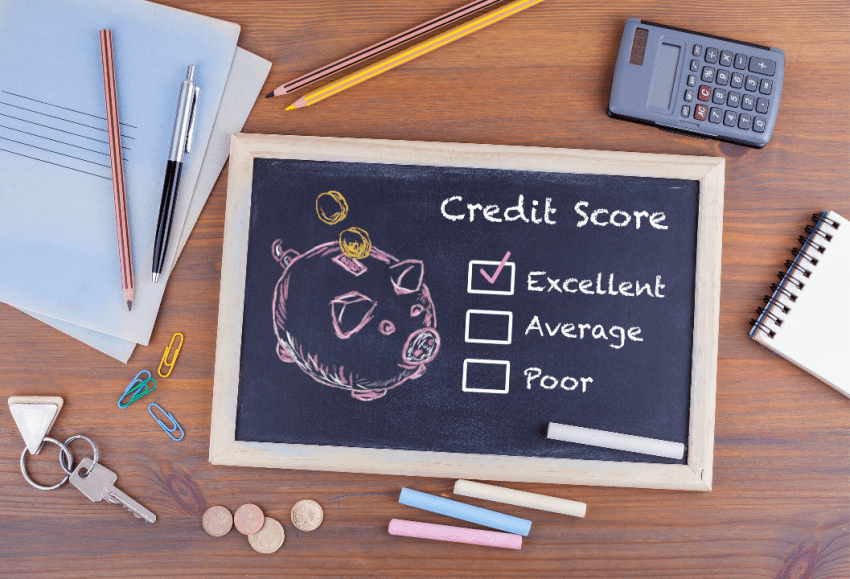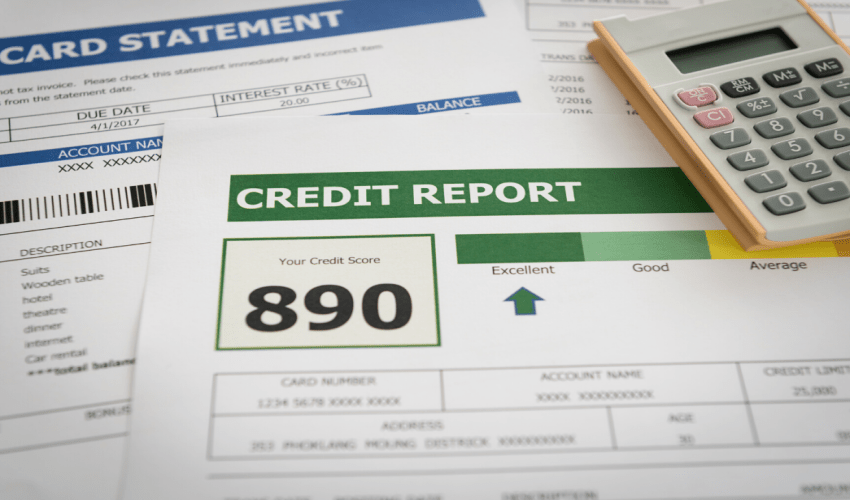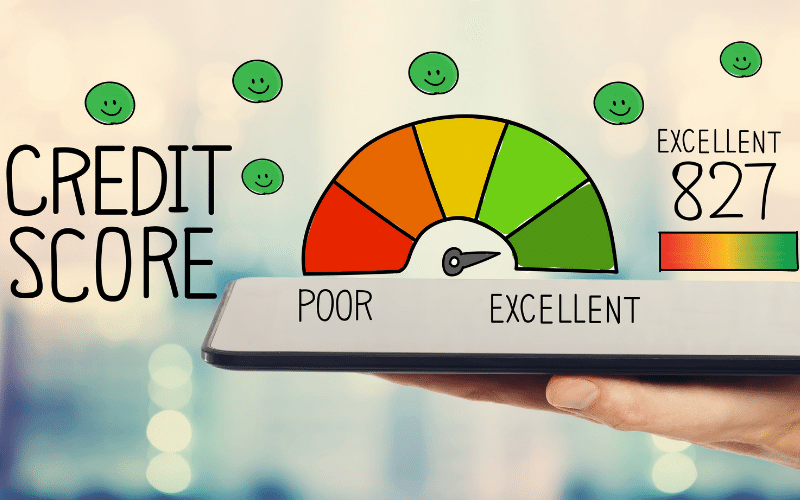Table of Contents

In today’s society having good credit is not only important but it’s pretty much a requirement. Having good credit is not just something you need to have to get common services such as credit cards, loans, or mortgages.
Your credit is checked and evaluated for many everyday services such as signing a lease agreement, buying and activating a mobile phone, utility services, and so on. As you may already know the perks for having great credit is undeniable. It puts the ball completely in the corner of the consumer rather than the lender.
Some of the obvious benefits of having a near-perfect credit score are not only will you have lenders begging for your business but in most cases, you’ll be offered the best interest rates on long term loans that could potentially save you thousands of dollars over the life of the loan.
So, as you are about to learn, the better your credit score, the better credit power you have to work with. Continue reading to learn 20 tips you can start using right away to boost your credit score substantially and quickly. Keep in mind that raising your credit score will take some dedication, but there’s no secret club or shortcuts to achieving credit score perfection.
1. Check Your Credit Score Every Year
If you don’t know already then, I’m here to tell you that you can get a free credit check every year from each of the three major credit bureaus. Based on this fact there is no excuse that you should not take advantage of this all too important service. By checking your credit report annually you’re able to detect early on if there are any errors or derogatory information that could be listed on your report.
Also, if an imposter has taken over your credit, you’ll be able to be pro-active with stopping any further damage. If you are not already using a credit and identity monitoring service such as Lifelock, or Norton then it is highly recommended that you do so to help fraudsters from turning your life upside down. You can get free credit reports at AnnualCreditReport.com

2. Take Care of Old Debts First
If you are carrying a balance on credit cards, it’s important to focus on paying off those balances that carry over each month as your first priority. When FICO calculates your score, the type of debt you pay is factored into your score. There are two types of debt that are weighed: revolving and installment.
Revolving debts typically have higher interest rates, and your minimum payment is based on the amount you owe. (Example: Department store credit cards)
Installment loans are fixed loans of a lengthy time period, such as a mortgage or car loan. (Example: Mortgages, car loans, student loans)
So, when you pay down your revolving debts first, you’ll often pay less in interest and paying less interest just makes way more financial sense.
3. Pay Your Bills on Time
This goes without saying. Making payments on your debt when they’re due is the #1 most important factor to increasing your FICO score. It is estimated that as much as 35% of your score is the result of your payment history. If you have numerous late payments or debts that have been sent to collection your credit score will definitely take a beating.

4. Set up Automatic Bill Payments
To help make sure your bills are paid on time each month, set up as many automatic payments as possible for your credit accounts. Having your bills automatically deducted from your bank account on a specific date ensures that you’re never late on your bills.
5. Make Online Payment
This is similar to setting up automatic bill payments. If for some reason you can’t set up auto payments, then check to see if the lender accepts paying your debt online. By paying your bills online you reduce the chances of your payments arriving and processing after the due date because of delays with the mail system. Online bank is quick and makes your bookkeeping exceptionally easy.

6. Keep Good Standing Accounts Open
Don’t make the mistake that many consumers do by closing accounts with good creditworthiness. Consumers believe that by having fewer accounts, they’ll be demonstrating to lenders that they can responsibly manage their credit.
Unfortunately, it doesn’t work out that way. 15% of your FICO score is derived from the length of time your credit accounts are open. If your accounts are in good standing, keep them open so that lenders will view you as being more of a responsible borrower. I recommend making an attempt to use these good-standing accounts a couple of times a year to ensure they stay open and aren’t closed by your lender.
7. Limit Your Credit Score Checks to 2- 4 Times a Year
There is no need to check your credit score like a hawk every month. Any changes to your FICO score can take a long time to adjust upward, especially given that your length of credit history contributes to about 15% of your FICO credit score. It takes a lot of data points to paint an accurate picture for lenders.

8. Pay Off Your Credit Debt Each Month If Possible
I understand that paying off your credit balance each month can be hard but whenever don’t allow those debts to carry over month after month. One of the biggest credit myths is that you need to carry a balance on your credit cards to improve your credit score, which just isn’t true. If you can’t pay your bill in its entirety than pay as much as you can over the minimum amount due as possible.
Not only does paying off your debt in full each month help boost your credit score, but it also helps lower the costs for goods and services because you eliminate paying high-interest rates on those purchases. It also helps keep your aggregate credit utilization down, which comprises about 30% of your FICO credit score.
9. Ask to Have Interest Rates Lowered
Asking for a lower interest rate from a lender may seem crazy but believe it or not, asking your lender for a lower interest rate works out more often than not. Crazy huh? Most consumers are either afraid to ask for a lower interest rate or just made the decision for the lender by assuming they will automatically say “NO!” to their request.
If you ask for a reduced interest rate, you just might get it, which means lower costs for you and possibly the ability to pay down your debt faster if you’re carrying a balance. I’ve been quite surprised by the results I’ve gotten by just asking.
It’s crazy what you can gain by just asking… and if you’re said “No” you don’t lose anything or you insulted the lender and now they will increase your interest even more. By not asking, you lose the chance for lower interest rates and the ability to pay less money and pay down your debts faster.

10. Increase Your Credit Limit
Increase my credit limit? Huh? You’re probably thinking more credit means more spending power and a greater chance to go deeper into debt, right? Well, you still have to make sure you can afford those purchases and use your credit responsibly. Just because you have more spending power does not mean you have to spend it.
The theory behind this is simple: The higher your credit limits, the less likely you are to use more than 30% of your aggregate credit, which is the point where your credit score could take a hit.
It’s sometimes puzzling to me why consumers resist when lenders offer a credit limit increase, or why they fear asking for a higher credit limit. If you’re a compulsive spender, this fear would be justified. In all other cases, I’d suggest cardholders embrace the idea of higher credit limits.
You’re probably wondering if your lender is going to increase your credit limit won’t they have to check my credit score? The answer is “Yes.” Lenders will likely take a hard look at your credit report, and it may result in a temporary loss of a few points on your credit score. However, over the long term it could help lower your credit utilization rate, which will have a much more positive impact on your credit score as long as you remain responsible with your spending.
